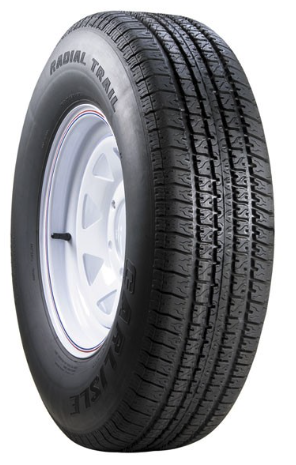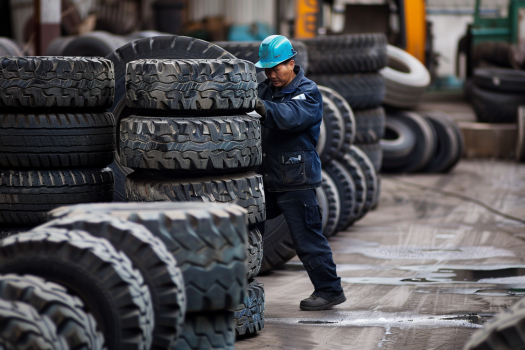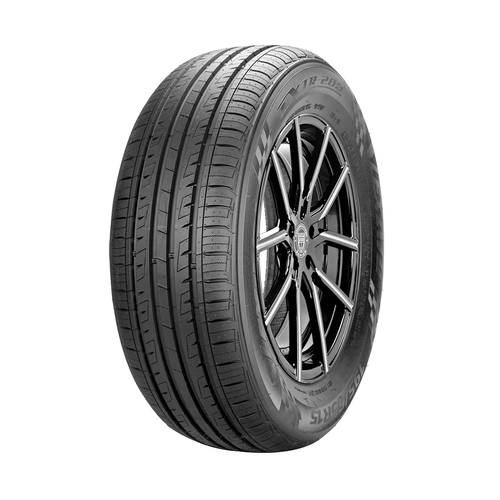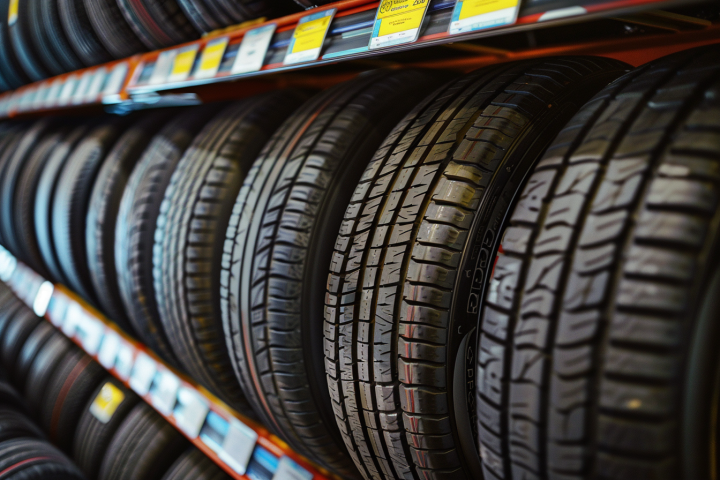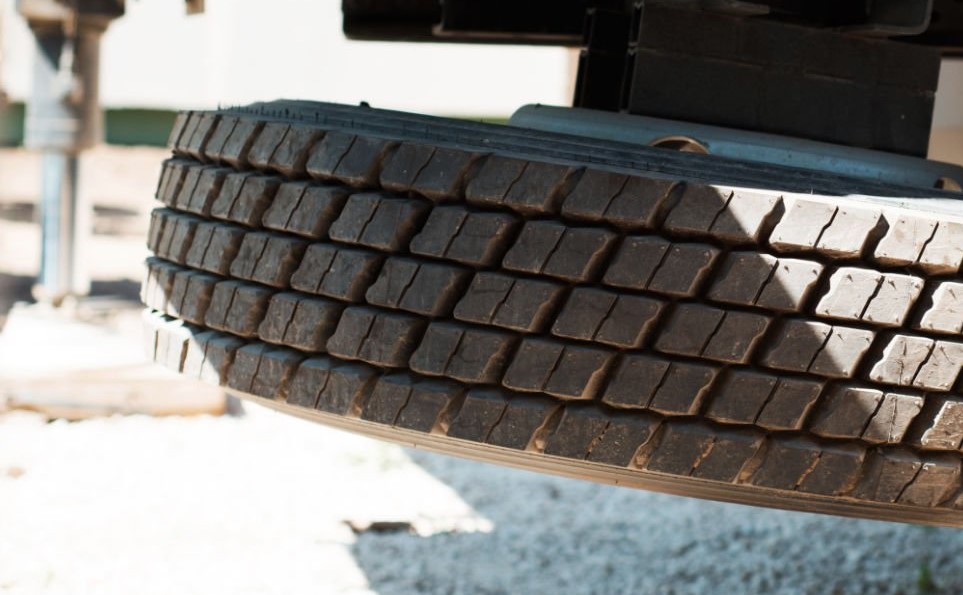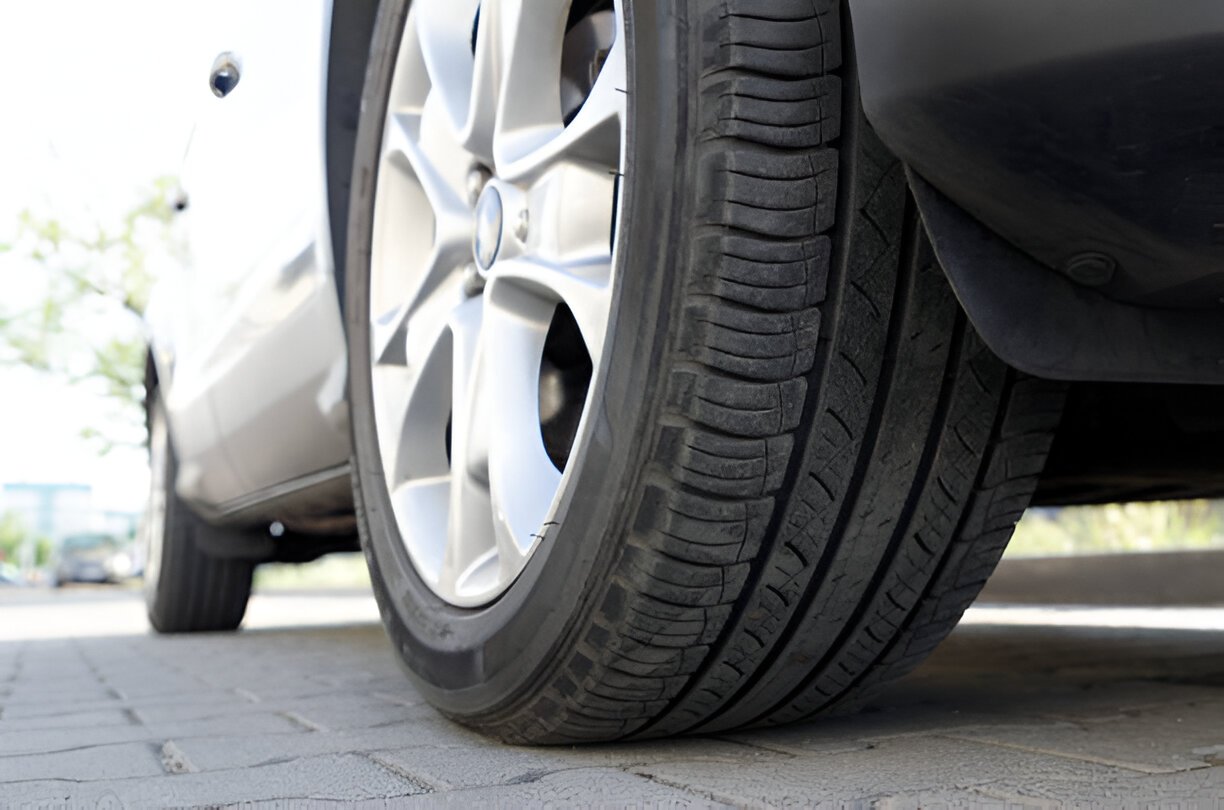Last Updated on August 1, 2025
Maximizing Your Camping Experience with the Right Trailer Tires
Camping in its traditional form is a retreat from urban settings, an immersion in nature’s lap. However, introducing a trailer into this experience is like bringing a touch of home into the wilderness. The comfort of your bed, the luxury of personal space, and the convenience of having your amenities make it a wholesome experience. But remember, the efficiency of this experience is significantly determined by a component that often goes overlooked – the trailer tires.
The Critical Role of Trailer Tires
At a cursory glance, one might assume all tires are built similarly. But trailer tires are a breed apart from your regular car tires. Why? Because they bear the responsibility of carrying the trailer and the weight of everything inside it. Whether cruising on an interstate or navigating through a forest trail, these tires provide stability, preventing fishtailing or undue wear. Their design and build account for this extra weight, ensuring that your journey remains uninterrupted by tire mishaps.
Summer is nearly here, with warm temperatures and clear skies on the horizon.
And what better way to take advantage of the weather than camping?
This summer, use a camper trailer to enjoy camping with convenience not afforded by a tent while taking a road trip. Whether you’ve just bought a trailer and can’t figure out how to hook it up to your truck or are just looking for tips to enhance your experience, let’s cover everything you need to know to have a fantastic summer camping.
Tires and Hitching
Before you can enjoy using your camper, you must get to the campsite. Ensure you have the right vehicle, such as a pickup truck, to haul a massive trailer.
Next, you need two important parts: Trailer tires and a tow hitch. We suggest the Carlisle Radial Trail RH for tires that will get you to your destination faster than other brands if you are on wide-open, high-speed highways. You can have more time outdoors with a higher PSI limit, meaning a top speed of 81 mph instead of 65 mph.
- Read the owner’s manual for your vehicle, and make sure the maximum tongue weight — how much weight from the trailer is applied as downforce on the back of the tow vehicle — is not more than 15 percent of the trailer’s weight. Anything smaller than a truck or SUV is not likely to be able to handle the load and will result in disaster. Pro TIP: Check if your vehicle can handle the load. Your truck might need a weight-distribution (W-D) hitch or an anti-sway control device, especially on lighter trucks, if the load is more than 2,000 lbs. Some trucks won’t require the device until 5,000 kg.
- Back to PSI, check your tire pressure before every trip. Weigh your rig and check its height. Know where you can fit, rather than guessing, or you will tear an overhang off or without a camper roof.
- Next, you need to know how to use your tire hitch. How are you going to attach the trailer to the trap? Will you have another person on the radio helping? A rear-view camera? Find the best way for you, and practice before starting your trip. This also goes for driving — take a test drive, if possible, to get a feel for the trailer.
Pro TIP: When unhitching the fifth wheel, use a marker to add hash marks to the landing leg so you know the leg elevation for hitching. Use levels to ensure your trailer is parallel to the ground from there. Practice this a few times, as well.
- Once you have picked out a camping spot (You can use campsite finders to help you find a park with campsites) and have checked that your rig is safely attached, it’s time to hit the road.
- Remember that towing a heavy trailer behind your vehicle means the rules of the road, acceleration, and stopping distance will all drastically change.
- Take things slow if you need to, enjoying the scenery. Take your time backing up.
- Remember, make sure you are within weight tolerances and that your tires are properly inflated. Otherwise, you could suffer a blowout while driving, potentially doing expensive damage to your camper.
- Trailer tires are different from regular tires; be sure to have spares of both. They will also have different PSI ranges, so check on the wheel itself for the maximum pressure allowed. This can also affect speed, depending on the weight of the trailer.
Camping
Once you arrive, it’s time to set up camp. Come armed with a checklist to ensure you don’t miss any steps. Check in, and head over to your assigned spot. Before making your hookups, like electrical and water, run the hose for a few seconds to clean out any rust. Otherwise, that rust will go into your tank.
Pro TIP: To improve your camping trip, buy a splitter with two turn-offs and a clear sewer water hose adaptor extension. By cleaning out black water (sewer), then grey water (dish and shower), and then using the splitter to pump water back into the tank, your trailer’s tank will be spotless. Drain the black water when the tank is about ⅔ full.
- If you will be camping out in the desert or other non-campsite, known as “boondocking,” be sure to have extra water and supplies. Bring more water and food than you need, and conserve — especially if you don’t want to make constant dump trips.
- It also doesn’t hurt to invest in a good camping carpet. Bigger can be better, as less dirt and debris will enter the cabin. Invest in a Zoom ladder to clean your windows, roof, and front bubble. Even if your camper has a ladder built onto the chassis, a backup will be invaluable when waxing the front bow.
- Want softer lights while camping, but don’t want a fire to start inside your trailer? Invest in some LED candles. They run off batteries, do not produce a flame, and are less harsh than the interior lighting of the camper.
- Finally, make a second checklist for when it’s time to leave. Is everything stowed away securely? Was the water tank flushed? A step-by-step list will help organize all the important aspects for cleaning up and leaving the campsite in the same or better condition than when you arrived, and will ensure a safe return trip. Now have fun camping!
Choosing the Perfect Trailer Tires
With many options available, selecting the perfect tire can be daunting. Here’s a deeper dive into making an informed choice:
- Weight Consideration: The weight of your loaded trailer is paramount. Always check a tire’s load index to ensure it can handle your trailer’s weight.
- Terrain Adaptability: Not all tires are built for all terrains. If you’re an off-road enthusiast, you might need tires that can handle rough terrain. Similarly, if you’re a long-haul highway traveler, radial tires might be more up your alley as they’re built for such journeys.
- Climate Factors: Certain tires are adept at handling colder climates, while others might be more suited for hotter areas. Your choice should reflect your most frequent camping destinations.
Maintenance: More Than Just a Routine
An investment in good trailer tires is moot without regular maintenance. Here’s why each step is crucial:
- Tire Pressure Checks: Properly inflated tires ensure an even weight distribution, reducing the chances of a blowout. Moreover, they optimize fuel efficiency.
- Damage Inspections: The smallest puncture or cut, if ignored, can escalate into a major issue when you’re in the middle of nowhere. Regular checks can prevent unforeseen complications.
- Tire Rotations: Ensuring even wear across tires extends their lifespan and ensures consistent performance.
Ensuring an Optimal Camping Experience
Nature’s tranquillity, interspersed with moments of thrill, is the essence of camping. But to truly savor this, one needs the assurance that the journey will be as smooth as the destination is enjoyable. Investing time in understanding, choosing, and maintaining your trailer tires guarantees this smoothness, allowing you to bask in the joy of camping undisturbed.
FAQs
Why do trailer tires wear on the outside?
Trailer tires can wear outside for several reasons, including over-inflation, misalignment, or suspension issues. Tires bulge when over-inflated, causing the outer edges to bear more weight. Additionally, if the trailer’s wheels are not aligned correctly, it can result in uneven tire wear. Regular checks and proper maintenance can prevent such wear patterns.
What are the best tires for a travel trailer?
The best tires for a travel trailer often depend on the user’s specific needs. However, some top-rated brands that are frequently recommended include Goodyear Endurance, Maxxis M8008, and Carlisle Radial Trail HD, to name a few. It’s essential to consider factors like load capacity, intended use, and terrain while choosing the right tire for your trailer.
What are trailer tires used for?
Trailer tires are specifically designed for use on trailers to carry heavy loads. These include travel trailers, boat trailers, utility trailers, and other types of towable vehicles. They have stiffer sidewalls to handle the weight and offer stability, reducing sway while towing.
Why use trailer tires on a trailer?
Using trailer-specific tires on trailers is crucial because they are engineered to handle the unique demands of carrying heavy loads. Their construction, design, and materials differ from regular car or truck tires. Using common tires on a trailer can lead to reduced stability, increased sway, and a higher risk of blowouts due to the added weight and pressure on the tires.
-
Automotive Specialist
-
Proofreader
-
Writer




